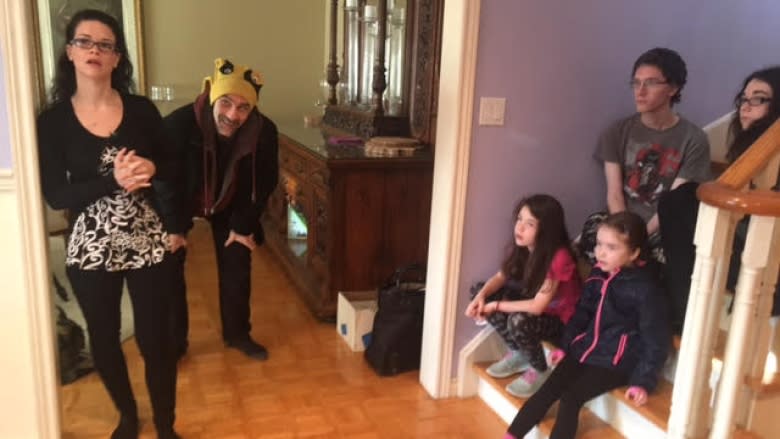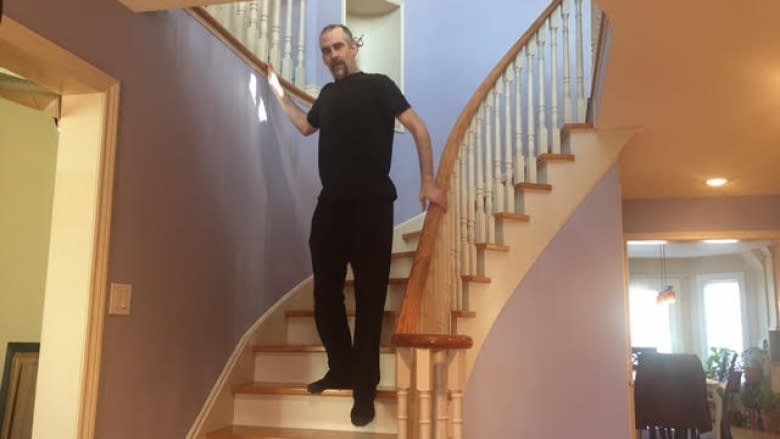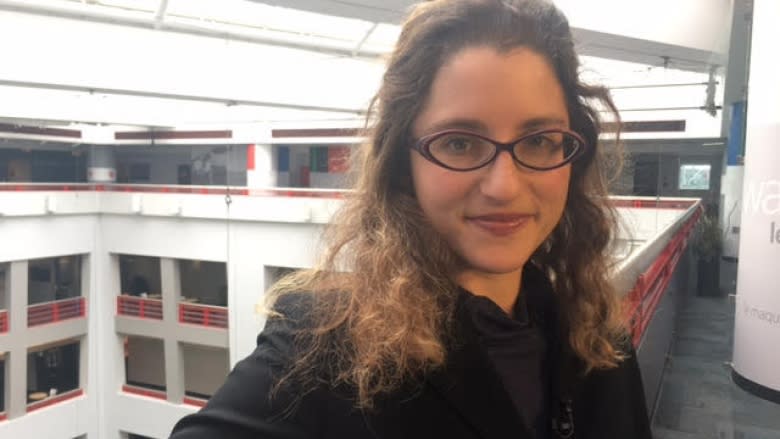Why a family of 6 in Oakville is living on $36K a year
As he's packing lunches and serving up waffles for his young daughters, Steve Rescan stops to rest every few minutes. He's hunched over, with his hands on the counter to steady himself.
"I've got to lean on something or my hips start to give," said the 40-year-old. "It's a sharp constant pain."
Four years ago, at the age of 36, Rescan was diagnosed with degenerative disc disease, mild scoliosis and osteoarthritis shortly after he stopped working his construction job. He spent 17 years installing aluminum siding for new subdivisions.
"I was having trouble bending down, standing, doing anything," he told CBC Toronto. "I stopped [working] at Christmas, hoping my back would get better. Never did."
Workers' compensation
Rescan applied for workers' compensation through the Workplace Safety and Insurance Board (WSIB), but was denied, and the family has spent the last few years trying to fight that decision.
His doctors said his conditions were exacerbated by his construction work.
The WSIB appeals tribunal said "there is no significant dispute ... the worker has a disabling low back condition" and it accepted that "the worker's duties were reasonably physically demanding."
But the tribunal said it was not "persuaded on a balance of probabilities that the worker's back condition is the result of his work duties."
Rescan says he can't believe that 18 years of construction work didn't worsen his condition.
"You have to lug ladders around, unload equipment, materials, a couple hundred pounds a box," Rescan told CBC Toronto. "There's 30 pounds on your hips, your tool belt. You're at awkward angles, leaning. They shot me down saying it wasn't work related...."
In a statement to CBC Toronto, Christine Arnott, spokesperson for the WSIB wrote, "A claim for a work-related injury will not be denied because of a pre-existing condition, but the WSIB has an obligation to assess the ongoing work-relatedness of claims."
Family of 6
Because he stopped working and did not qualify for workers' compensation, Rescan's wife, who was a stay-at-home mom, went to school and got a job as a personal support worker, making $36,000 a year.
The family of six currently lives with Rescan's mother to make ends meet.
"[Steve and I] haven't been to the dentist in two years. We make sure our kids go, because we want to make sure they're taken care of, said Rescan's wife, Danielle.
"To be young and physically fit for so long to being 40 years old and run down, it's not something he chose to do," she said. "Having the two older children, 19 and 16, you see a big difference in his level of activity with them. He would go out and play soccer in the fields with the older ones. With our eight and five year old, he couldn't pick [our daughter] up."
WSIB policy change
The WSIB confirmed to CBC Toronto Tuesday it changed its practices around workers' claims in 2010. From then on, it became harder for workers with pre-existing conditions to get compensation.
That became official policy in November 2014. WSIB figures show the percentage of claims in which it has recognized a permanent impairment has decreased from 9.3 per cent in 2010 to 5.9 per cent in 2015.
Maryth Yachnin, a lawyer with the Industrial Accident Victims Group (IAVGO) in Toronto, calls many of the WSIB decisions "unjustified and completely unfair" to workers.
"They don't want to be forced out of work because of disability, but that's their reality. And compounded on that reality, which is bad enough, but now they're forced into poverty. We see tons of it," she said.
"This system, which is supposed to support workers. is actually doing the opposite."
Danielle Rescan agrees.
"For a system you've been putting money into for 20 years, for them to turn around and say, 'Sorry we can't help you,' none of it makes sense," she said.
"We want help. We want answers that make sense."












